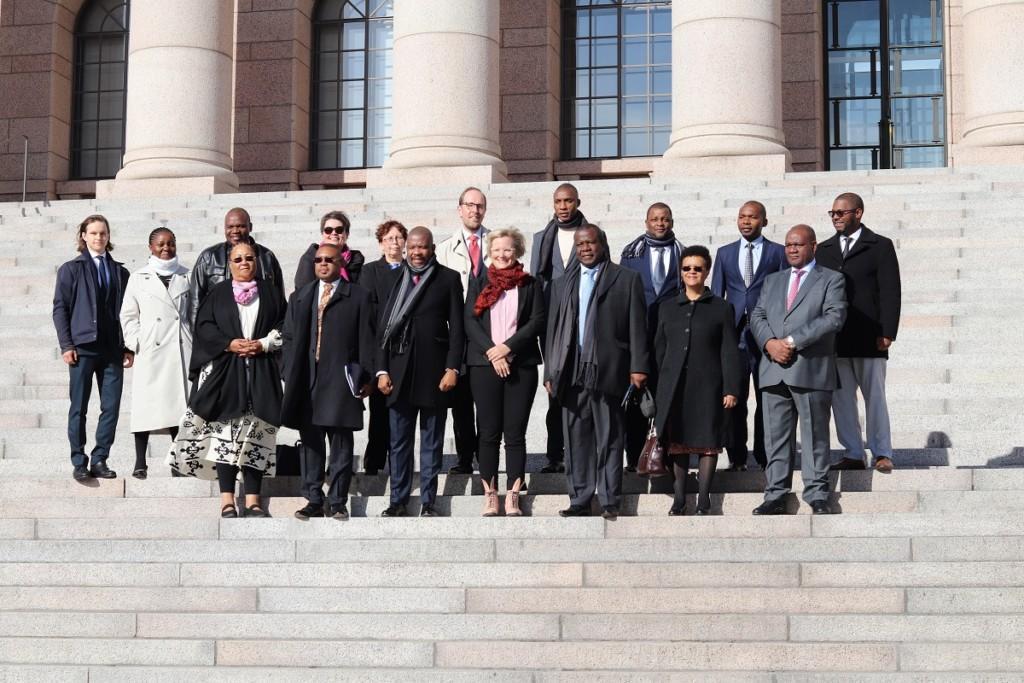
Demo Finland in Mozambique
Co-operation started in 2017.
Partner: Instituto para Democracia Multipartidaria (IMD)
The programme from 2017 to 2024 was part of Finland’s bilateral development programme with Mozambique. The aim was to enhance the oversight role of the Parliament and Provincial Assemblies on the extractive industries and to increase their capacity to assess the implementation of the existing legislation on natural resource management. In particular, the programme supported the training of members of Mozambique’s parliamentary committees and provincial parliamentarians on the impact of the extractive industries and the natural resource sector. The aim of the trainings was to increase scrutiny and understanding of the human rights and environmental issues and legislation associated with these sectors. Committee members also visited mining sites to assess the conditions of local communities in areas where companies are investing.
The 2025–2026 programme aims to develop parliamentary oversight not only in the natural resources sector but also in climate change adaptation. The programme supports dialogue between decision-makers and civil society on these issues at both the national and provincial levels.
Results of our work
- The programme set up a dialogue platform for provincial and national parliamentarians to facilitate co-operation on issues related to the extractive industry. This has enabled many representatives from the Provincial Assemblies to work with the national Parliament for the first time and to bring their practical experience from their provinces into the legislative process.
- The training of the Parliamentary Committees has raised understanding in the Parliament about the effects and dynamics of the extractive industry sector, and its oversight role has improved. Human rights impact assessments have become part of MPs’ provincial visits and committee agendas.
- The Parliament, through its standing Committees, is holding more hearings on extractive industry issues with the government, which are carried out with more technical knowledge than before.
- The programme has increased dialogue and information exchange between citizens and MPs. For example, due to the increased monitoring by the Parliament, the government has intervened in operations in two mining areas due to environmental issues, as citizens have brought these problems to the attention of MPs.
- Provincial Assemblies are now actively organising stakeholder meetings related to the extractive industries in their own areas, which has increased opportunities for monitoring the implementation of legislation.
Background on Mozambique
Mozambique’s political party system is going through a period of transition, as the two strong parties that have long ruled the country have found new political challengers. There are now four parties in the Parliament and strong opposition figures outside the Parliament.
Conflict continues in the north of the country, involving both Islamist movements and the exploitation of Mozambique’s vast natural gas reserves. The exploitation of natural resources is one of the main causes of conflict globally, and Mozambique, like other emerging and resource-rich countries, is at risk of resource curse: without oversight, rules and transparency, large natural wealth will not lead to job creation or equitable economic growth, but to an escalation of conflict. At the same time, good governance is also needed in climate change adaptation, as Mozambique is highly vulnerable to severe tropical storms and flooding.
- Ranked 120/179 in V-Dem’s Liberal Democracy Index.
- Classified as an electoral autocracy* by V-Dem.
- Latest parliamentary election: 2024.
- Women in parliament: 39%
- The UN Covenant on Civil and Political Rights was ratified in 1993.
- The UN Convention on the Rights of Women was ratified in 1997.
- The UN Convention on the Rights of Persons with Disabilities was ratified in 2012.
- More information on the state of democracy in Mozambique: https://www.idea.int/democracytracker/country/mozambique
*Electoral autocracy refers to a state where multi-party elections for the executive exist, but there remain insufficient levels of fundamental requisites such as freedom of expression and association, and free and fair elections.
